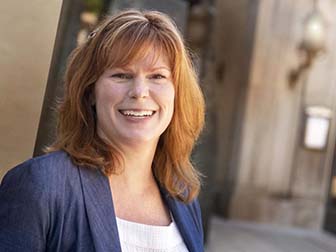HERSHEY, Pa. -- A positive outlook and support from people around them help patients with diabetes cope with psychosocial challenges of the disease, according to an international study that included researchers from Penn State College of Medicine. A better understanding of the emotional, psychological and social challenges people with diabetes face could improve health outcomes.
The Second Diabetes Attitudes, Wishes and Needs (DAWN2) study is the largest analysis yet undertaken of personal accounts of people living with diabetes. The original DAWN study in 2001 found that 41 percent of adults with diabetes have poor psychosocial well-being.
In the follow-up study, almost half -- 46 percent -- of people with diabetes had negative emotional, psychological and social experiences related to their illness. Two major negative themes emerged. People with diabetes reported feeling anxiety, fear, worry, depression and hopelessness about their condition, and they experienced discrimination at work and misunderstanding from the public. One in five study participants reported workplace discrimination including losing their job due to their illness.
The researchers administered online, telephone and in-person questionnaires to 8,596 people with diabetes living in 17 countries including the United States and Canada. Patients with type 1 diabetes and patients with type 2 diabetes were included. The results appear in the latest edition of Diabetes Care.
As part of the follow-up study, researchers asked people with diabetes about their successes with the condition, as well as their challenges. Again, two themes emerged. Personal resilience through a positive outlook on the disease, as well as support from family, friends and healthcare professionals helped people deal with the psychosocial challenges of diabetes.
"We found that although these negative experiences with diabetes exist, people also held on to the positives," said Heather Stuckey, assistant professor of medicine and lead qualitative investigator for DAWN2. "Some said diabetes made their lives a little richer because they ate healthier foods, or they were able to connect with their family more to overcome challenges. It gave them a better appreciation of what they have."
A recent update to the National Health and Nutrition Examination Survey found that a large percentage of people with diabetes have poorly controlled glucose levels. Researchers believe uncontrolled diabetes cannot be explained by lack of diabetes knowledge alone, so the DAWN studies consider psychosocial factors that contribute.
"We believe that what's under the surface -- what people are thinking and feeling, and how they're reacting to diabetes and making meaning of it -- is what is driving poor diabetes self-management," Stuckey said.
Several messages for people with diabetes and those caring for them emerged from the study.
Some people with diabetes are reluctant to share their challenges and needs because they do not want to be perceived as a burden to family members. This creates a vicious cycle because family members do not always know how to help, so the person with diabetes can feel more isolated and disconnected.
"We would like to encourage patients to be able to share their thoughts and experiences about having diabetes with family members and other trusted individuals," Stuckey said. "We believe that will relieve some of the stress that people experience and will improve living with diabetes."
While dealing with diabetes can be a struggle, a positive outlook really does help. Many of the study participants reported a silver lining of their diagnosis, such as weight loss or a better understanding of others' illnesses. Looking on the bright side kept them motivated to get through challenging times.
"If we can look for the kernels of positivity within the negativity, that's where that sense of resilience seems to be coming from," Stuckey said.
As people with diabetes start to share, family members often do not know how to help.
"Our advice is to ask them outright: 'Is there anything I can do for you about your diabetes care today, or over the next week?'" Stuckey said.
Family and friends can also educate themselves about the disease by visiting the websites of the American Diabetes Association and the International Diabetes Federation, and by attending doctor's office visits.
"Although there are negative psychosocial aspects of having diabetes, we found that people are resilient and find ways to adapt," Stuckey said. "If people with diabetes can be more open and share their experiences -- and if we can listen to them -- that can increase understanding and self-management."
Other researchers on the project were C.B. Mullan-Jensen and S.E. Skovlund, Novo Nordisk A/S, Copenhagen, Denmark; G. Reach, Avicenne Hospital, Bobigny, France; K.K. Burns, University of Alberta; N. Piana, University of Perugia; M. Vallis, Dalhousie University, Halifax, Canada; J. Wens, University of Antwerp; I. Willaing, Steno Diabetes Center, Gentofte, Denmark; and M. Peyrot, principal investigator, Loyola University Maryland.
Novo Nordisk, a manufacturer of diabetes care products, funded this study.



